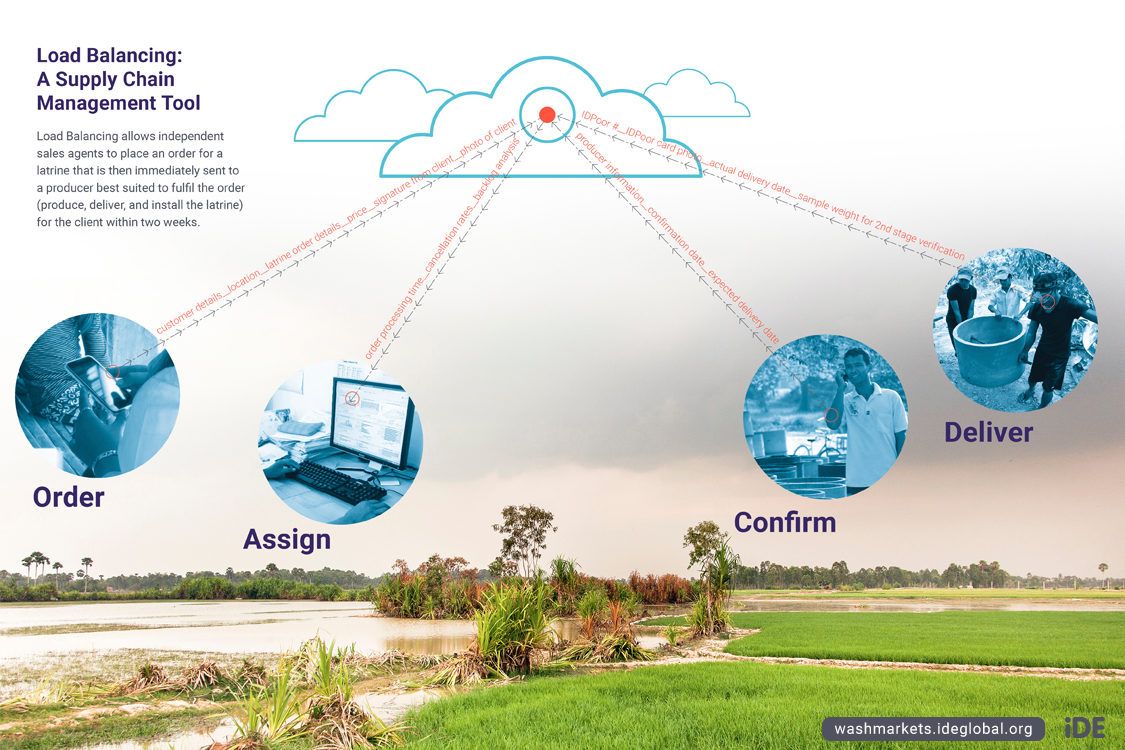Data for Decision-making

iDE Global WASH
iDE’s approach to measurement, evaluation, and learning includes both data for action and data for impact.
Data Driven Culture
iDE’s measurement, evaluation, and learning teams in field offices and at our HQ contribute to a organization-wide data driven culture. It’s not enough to have well constructed tools to improve management decision making and ample evidence demonstrating significant impacts from our work. In fact, the most important component of a successful measurement strategy is our staff—the different people throughout the organization who are entering data, reviewing results, and making decisions based on that information. iDE’s culture supports and needs rigorous data, evidence, and knowledge. There is an expectation among our workforce that we will link the anecdotal field experiences with hard data and evidence to be able to make sound decisions and effectively communicate our results.

iDE’s approach to measurement, evaluation, and learning includes both data for action and data for impact.
Data for Action: cloud-based information systems to deliver real-time information to the proper people at the right time
Data for action helps iDE teams access accurate, reliable information about what has been completed on a particular program, what needs to be done, and where operational efficiencies can be implemented. We can’t wait for the end of a project to know what is working and what isn’t. To achieve this degree of visibility, iDE develops state-of-the art management information systems (MIS) adapted to the nuances of each country. These systems allow decision-makers at all levels of the program to collect, analyze, and act on key performance and impact data in near real-time.
As well as providing tactical information for continuous improvement of a program’s operations, data also speaks to the evolution of the market, informing day-to-day decisions and longer-term strategies for growth and sustainability.
A custom-built MIS allows for rigorous piloting and rapid evaluations to test and compare operational models.
Custom-built, dynamic, cloud-based information systems—using TaroWorks and Salesforce—ensure that our management decisions are based on evidence. This integration enables us to have real-time data upon which our cost-effectiveness, progress towards targets, and key performance indicators can be analyzed, allowing us to quickly prioritize investments and business models that work and eliminate those that don’t.
For example, to better understand how we might sell to lower-income segments of the market, we randomized the offering of a targeted subsidy alongside cash-only and finance payment options. This research shows that targeted subsidies enable sales agents to sell more latrines, more effectively, to poor households. It’s this kind of rigorous operational research and thorough data analysis that ensures our interventions are operationally efficient and that they are being optimized according to ever-changing market conditions.
Data for Impact: periodic analyses, using statistical analysis tools for in-depth study
iDE also carries out data-collection processes and research to understand if what we’re doing really matters, and whether we’re having a positive effect on outcome areas of interest. Data from our MIS systems combined with rigorous evaluation, statistical analysis, and human-centered design insights allows iDE to obtain robust evidence about social and economic outcomes, including areas like latrine use, changes in women’s empowerment and agency, and coverage rates among targeted population segments.
For example, to test whether iDE’s hand hygiene behavior change contests in Vietnam impacted hand hygiene knowledge and practices, a quasi-experimental impact evaluation was conducted. A multi-stage clustered sample of 925 households were surveyed from three experimental groups and multiple knowledge and practice indicators were analyzed. This study shows that contests may be an effective and scalable way to transfer knowledge and elicit behavior change in rural Vietnam. Results suggest that improved sanitation ownership has a much larger effect on hygiene practices than just participating in the contest, but that the contest alone can improve hygiene practices.
Carrying out periodic rigorous evaluation and research to test the effectiveness of our work ensures that our interventions are having the impact that we theoretically believe they have. When this is the case we can scale them, and when it is not, we can re-invest in design and operational research to understand whether the underlying theory is flawed, or we need to improve how we are doing our work.
Investments in rigorous research, impact evaluation and data analysis ensure that we are achieving the intended outcomes and that iDE is being held accountable to our donors, to the entrepreneurs we are working with and, most importantly, to our clients.